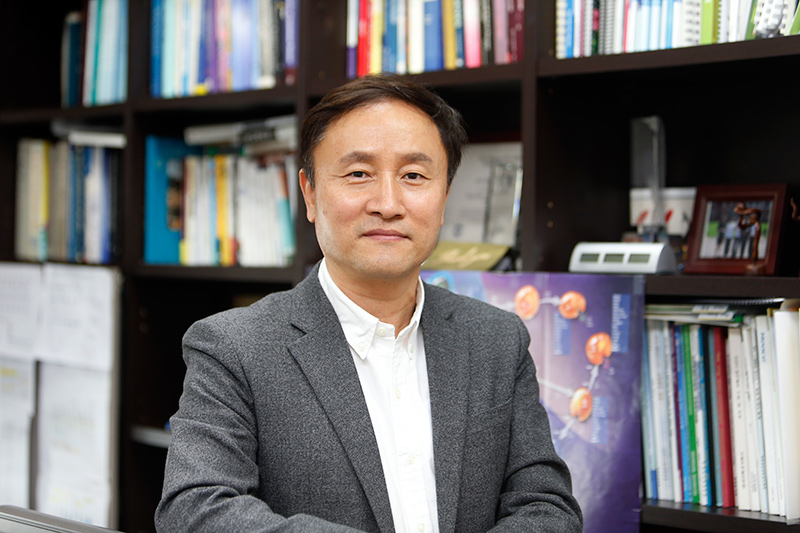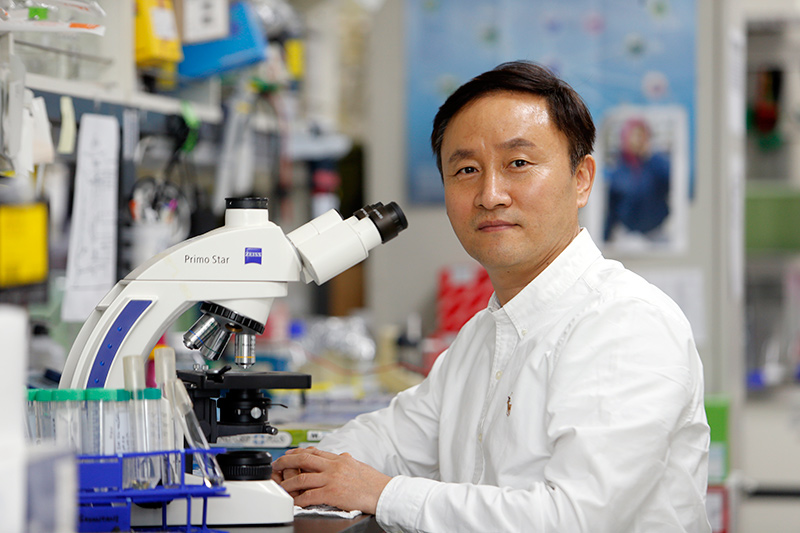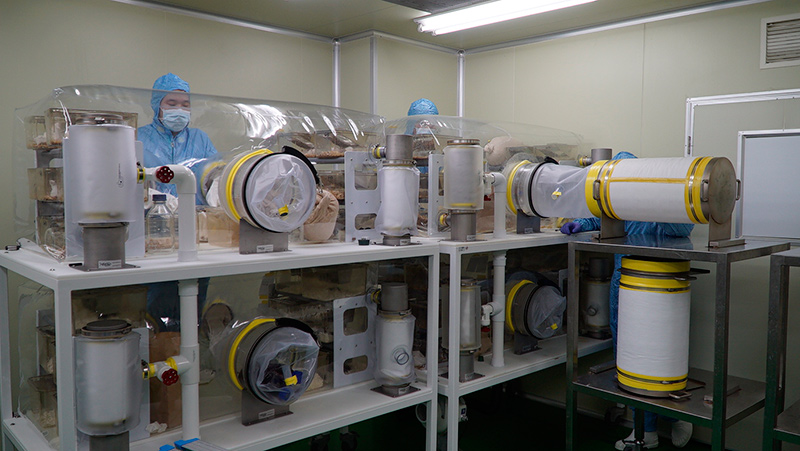주메뉴
- About IBS 연구원소개
-
Research Centers
연구단소개
- Research Outcomes
- Mathematics
- Physics
- Center for Theoretical Physics of the Universe(Particle Theory and Cosmology Group)
- Center for Theoretical Physics of the Universe(Cosmology, Gravity and Astroparticle Physics Group)
- Center for Exotic Nuclear Studies
- Center for Artificial Low Dimensional Electronic Systems
- Center for Underground Physics
- Center for Axion and Precision Physics Research
- Center for Theoretical Physics of Complex Systems
- Center for Quantum Nanoscience
- Center for Van der Waals Quantum Solids
- Chemistry
- Life Sciences
- Earth Science
- Interdisciplinary
- Institutes
- Korea Virus Research Institute
- News Center 뉴스 센터
- Career 인재초빙
- Living in Korea IBS School-UST
- IBS School 윤리경영


주메뉴
- About IBS
-
Research Centers
- Research Outcomes
- Mathematics
- Physics
- Center for Theoretical Physics of the Universe(Particle Theory and Cosmology Group)
- Center for Theoretical Physics of the Universe(Cosmology, Gravity and Astroparticle Physics Group)
- Center for Exotic Nuclear Studies
- Center for Artificial Low Dimensional Electronic Systems
- Center for Underground Physics
- Center for Axion and Precision Physics Research
- Center for Theoretical Physics of Complex Systems
- Center for Quantum Nanoscience
- Center for Van der Waals Quantum Solids
- Chemistry
- Life Sciences
- Earth Science
- Interdisciplinary
- Institutes
- Korea Virus Research Institute
- News Center
- Career
- Living in Korea
- IBS School
News Center
| Title | IM Sin-Hyeog Explores the Link Between Gut Microbes and the Human Immune System to Treat Immune Disorders | ||||
|---|---|---|---|---|---|
| Name | Department of Communications | Registration Date | 2017-02-28 | Hits | 7071 |
| att. |
 thumb.jpg
thumb.jpg
|
||||
IM Sin-Hyeog Explores the Link Between Gut Microbes and the Human Immune System to Treat Immune Disorders.- IM Sin-Hyeog, Group leader of the Academy of Immunology and Microbiology (AIM) -
Focus InterviewQ: Tell us about the Academy of Immunology and Microbiology (AIM). Q: You left a pharmaceutical company and earned Ph. D. degree at the Israel's Weizmman Institute of Science. Why did you decide to change your path? Q: You now chair the International Scientific Conference on Probiotics and Prebiotics. Please tell us about the conference. "Our bodily surface are colonized by as many microbial cells as human cells or more. We are home for these microbes and it may not be an overstatement that on the number, type, and diversity of the microbiota are essential for maintaining health." IM Sin-Hyeog, group leader of the Cetner for the Academy of Immunology and Microbiology (professor at the Division of Integrative Biosciences and Biotechnology of POSTECH) researches the relationship between gut microbes and the human immune system to treat immune disorders. Microbes in our body may yield greater influence than genesThe NIH Common Fund Human Microbiome Project (HMP) is designed to generate resources that would enable the comprehensive characterization of the human microbiome. "The HMP began with the understanding that analysis of microbiome's role in health and disease could be used to treat disease. Non-genetic factors are attributed to 60% or more of disease states, and microbes are one of major causes of diseases," explains Im. The human microbiota is the collection of all the microorganisms living in association with the human body. The link between these microbes and our health is the focus of a growing number of research initiatives. One of the studies even suggests that the gut microbiota boosts action of anticancer drugs since changes in the composition of gut microbes heavily affect our immune and nervous systems. Im's group investigates to identify microbes that exhibits immune regulation effects, in particular probiotic bacteria and use them to treat immune disorders. Devoted to Developing Treatments of Immune DisordersAfter obtaining his master's degree in genetic recombination, Im researched at a Korean pharmaceutical company's R&D center for six years. To quench his thirst for more knowledge on immunology, he left the company to study at Weizmman Institute of Science. Despite reluctance by both his family and friends, he pushed forward with his decision, just like his motto, "Follow your heart with no regrets." He studied a mechanism underlying myasthenia gravis, one of the autoimmune neuromuscular diseases characterized by varying degrees of weakness of the skeletal muscles of the body. "Acetylcholine, a neurotransmitter substance is released at the nerve endings, travels from the neuromuscular junction (the place where nerve cells connect with the muscles they control) and binds to acetylcholine receptors which are activated and generate a muscle contraction. In myasthenia gravis, antibodies block, alter, or destroy the receptors for acetylcholine at the neuromuscular junction, which interrupts normal communication between the nerve and muscle. This prevents the muscle contraction from occurring. The antibodies are produced by the body's own immune system. I studied proteins that induce oral tolerance to the acetylcholine receptor for treatment of myasthenia gravis." In his experiment, Im made a large amount of acetylcholine receptors (AChR) using genetic recombination technology and fed them to mice. The experiment showed that oral administration of AChR suppressed disease progression by inhibiting autoimmune responses mediated by T cells and antibodies. This mechanism can be explained by "oral tolerance", an immune unresponsiveness to innocuous antigens like food. Im wanted to develop therapies for slowing down the progression of immune disorders, as well as for treating them. He found that Interleukin-10 (IL-10), an anti-inflammatory cytokine (with potent suppressive effects in preventing autoimmune disease) and the gut environment are essential for generating immunosuppressive regulatory T (Treg)cells. "Oral tolerance did not work in the absence of IL-10. Administraion of recombined AChRs exhibited immunosuppressive effects on the mice when they were fed in a relatively less clean laboratory. He found that in an extremely clean environment, protective effect was less successful. The finding made me realize that the gut environment needs to be changed since the local environment along with the material are crucial to inducing the materials' effects." Hoping to develop treatments for autoimmune and allergic diseases using immune modulation through oral tolerance induction, Im continued his research at Harvard Medical School as a postdoc fellow. Funded through grants by Cancer Research Institute, he studied underlying mechanism of IL-10 gene regulation at molecular level. Professor Anjana Rao, a renowned immunologist was Im's advisor during the postdoc fellowship.
Going Beyond IRT5 ProbioticsHaving returned to Korea as a professor of the School of Life Sciences, Gwangju Institute of Science & Technology (GIST), Im sought to identify specific strains of microbes that revitalize the generation of IL-10. He in particular looked at probiotics since they are generally considered as safe (GRAS) and can be orally administered to the human as well. Im developed a set of criteria to find a mixture of probiotics and tested their immune-regulatory effect in mice suffering diverse immune disorders. His experiment found that the oral administration of the probiotics mixture (IRT5) suppressed the progression of joint inflammation, atopic dermatitis, inflammatory bowel disease, rheumatoid arthritis, and myasthenia gravis. Im's research team found a mixture of specific probiotic strains could augmented the level of Treg cells. This probiotics mixture, designated IRT5 (Immune Regulation and Tolerance), was found to be an active suppressor of myasthenia gravis, uveitis (an inflammation of the inner layers of the middle eye) and childhood diabetes. Im published these findings in Proceedings of National Academy of Sciences (PNAS) in January 2010. His paper has had a significant impact on the field to an extent that the paper is one of the most cited papers (335 citations). The IRT5 induced immune tolerance by boosting the activation and number of Treg cells, leading to therapeutic effects in inflammatory bowel diseases. Despite a series of achievements, Im felt limited in furthering his study on the role of microbes in modulating the immune system due to the lack of essential research environment, a germ-free mouse facility. The special facility allows researchers to study how individual strains of bacteria influence the immune system, but it is not easy to set up. When Im was mulling over his next career path, Director Surh offered to join AIM that is equipped with the germ-free facility at POSTECH. Im says, "The germ-free mouse facility at AIM is essential to supporting investigations on microbes, but it is also one of few facilities available in the world." Im emphasized the need for national support to expand the facility since "that will allow other immunologists in Korea to be easily accessible to germ-free mice, which will result in significant progress in the immunology of the country."
Im has expanded the scope of his research beyond the IRT5. He identified a strain of Bifidobacteria that could enhance a differentiation of Treg cells in response to diverse dietary antigens and commensal bacteria, and is now finding that specific carbohydrates of the bacterial cell wall as well as metabolite of the bacteria are involved in inducing Treg cells, which leads to suppression of inflammatory immune disorders. Im says, "The study suggests that probiotics which are normally taken as food, can be used as a novel treatment." Enthusiastically, he adds, "We are soon to see tangible results from the study." He plans to identify immune stimulatory lactic acid bacteria to promote anti-cancer immunity. He says, "Now it is time to devise a tailor-made probiotics to boost immunity or to suppress hyper-immune responses depending on health condition of individuals. For this purpose, we need to identify the key effector molecules related with their distinct functionality. These studies will lead us to develop specific probiotics such as "pharmabiotics", a microbe with therapeutic potential. His exploration of gut microbiota continues today to develop novel therapeutic approaches for immune disorders such as allergies, atopic dermatitis, and autoimmune diseases. |
|||||
| Next | |
|---|---|
| before |
- Content Manager
- Public Relations Team : Suh, William Insang 042-878-8137
- Last Update 2023-11-28 14:20














